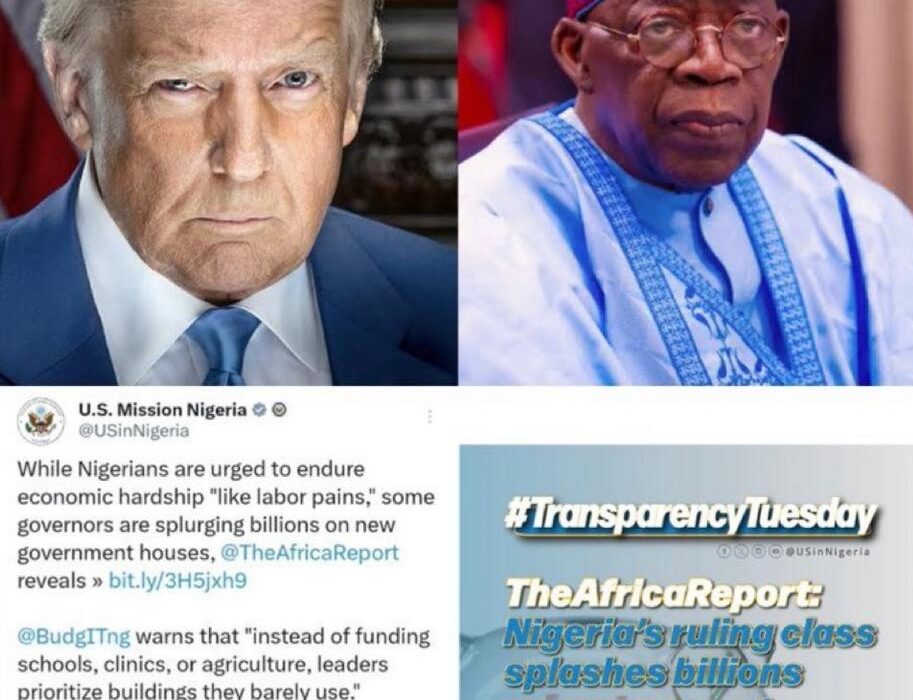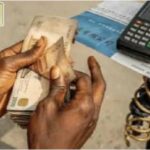The United States Mission in Nigeria has stirred public outrage and renewed scrutiny on Nigeria’s political leadership following a bold and direct condemnation of what it described as the extravagant lifestyle of the country’s ruling class amid growing economic hardship faced by ordinary Nigerians. In a viral statement shared through its official social media handle on Tuesday, the Mission declared, “Nigerian ruling class are splashing billions, and urging Nigerians to endure economic hardship.” The message, which many interpreted as an indictment of systemic corruption and elite insensitivity, has triggered widespread reactions across the country. The remark is seen as one of the most pointed criticisms from a major foreign diplomatic institution regarding Nigeria’s internal governance in recent years. Coming at a time when the country is facing its worst economic conditions in decades — marked by hyperinflation, youth unemployment, naira volatility, and rising poverty — the statement underscores growing international frustration over the disconnect between Nigeria's leadership and the plight of its people. Over the past few months, Nigerian authorities have approved and defended several high-cost expenditures, including the proposed purchase of new presidential jets, billions allocated to the renovation of government residences, and large travel budgets for public officials. These have sparked backlash from citizens who are increasingly frustrated with the federal government’s call for “sacrifice” and “patience” while top officials continue to live in privilege. Recent economic data from Nigeria’s National Bureau of Statistics shows inflation hitting a 28-year high, with food prices surging beyond the reach of average households. Meanwhile, minimum wage negotiations remain inconclusive, and subsidies for fuel and electricity have been either fully or partially removed, further straining the lives of ordinary Nigerians. In contrast, members of the political elite have continued to spend heavily on luxuries, foreign medical trips, new official convoys, and state celebrations, prompting widespread perception that governance in the country is increasingly disconnected from the people it is meant to serve. The U.S. Mission’s tweet appears to have struck a nerve precisely because of this growing divide. Civil society groups, labour unions, and social commentators have welcomed the statement, saying it affirms what many Nigerians have long known but feel powerless to change — that the country is being run in the interest of a privileged few, while the vast majority are asked to endure suffering without support. While the Nigerian government has yet to issue an official response, sources within the presidency and National Assembly have reportedly dismissed the statement as “undiplomatic” and “unfair.” Some lawmakers have argued that the U.S. should “respect Nigeria’s sovereignty” and refrain from commenting on internal governance matters. Nonetheless, anti-corruption advocates see the statement as a critical moment in Nigeria’s ongoing struggle for transparency and accountability. According to Dr. Abiola Ogunrinde, a political economist and governance analyst, the U.S. Mission's comment may encourage international partners and donors to demand higher levels of fiscal discipline and reform before further engagement. “The fact that a diplomatic mission as powerful as the United States has publicly voiced concern reflects the depth of Nigeria’s governance crisis,” Ogunrinde said. “It also gives legitimacy to the demands of everyday Nigerians who have been protesting silently or online about wasteful governance and lack of accountability.” In the wake of the U.S. statement, pressure is likely to mount on Nigerian leaders to justify their spending priorities and demonstrate a more sincere commitment to addressing the country's economic challenges. As public anger continues to grow, there are calls for President Bola Tinubu and his administration to lead by example by cutting government costs, curbing official excesses, and adopting pro-people policies that reflect the urgency of Nigeria’s economic reality. Whether that call will be heeded remains to be seen.










